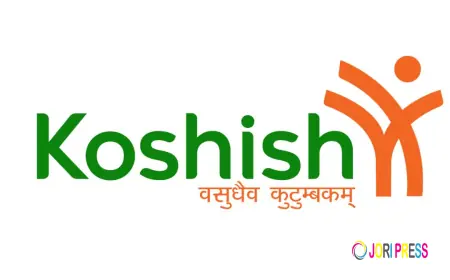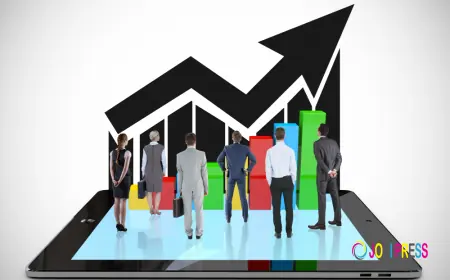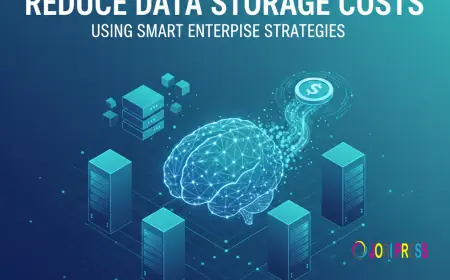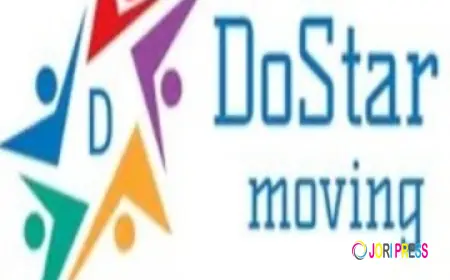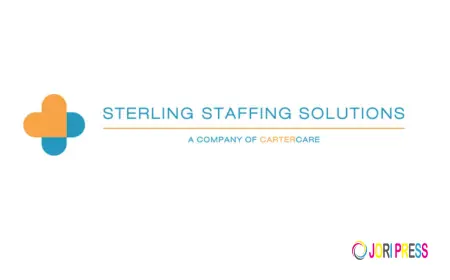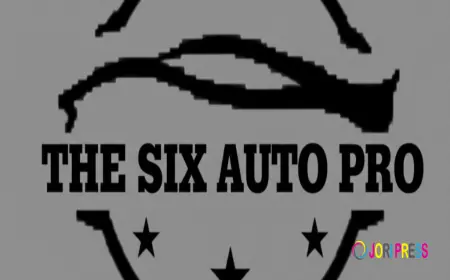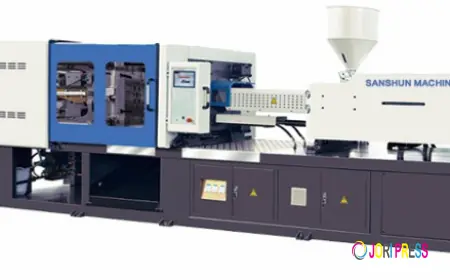AI-Orchestrated DAO Governance: Smarter Decisions Through Smart Contracts
Discover how AI-orchestrated DAO governance powered by smart contracts is reshaping decision-making. Explore services from top smart contract development company.
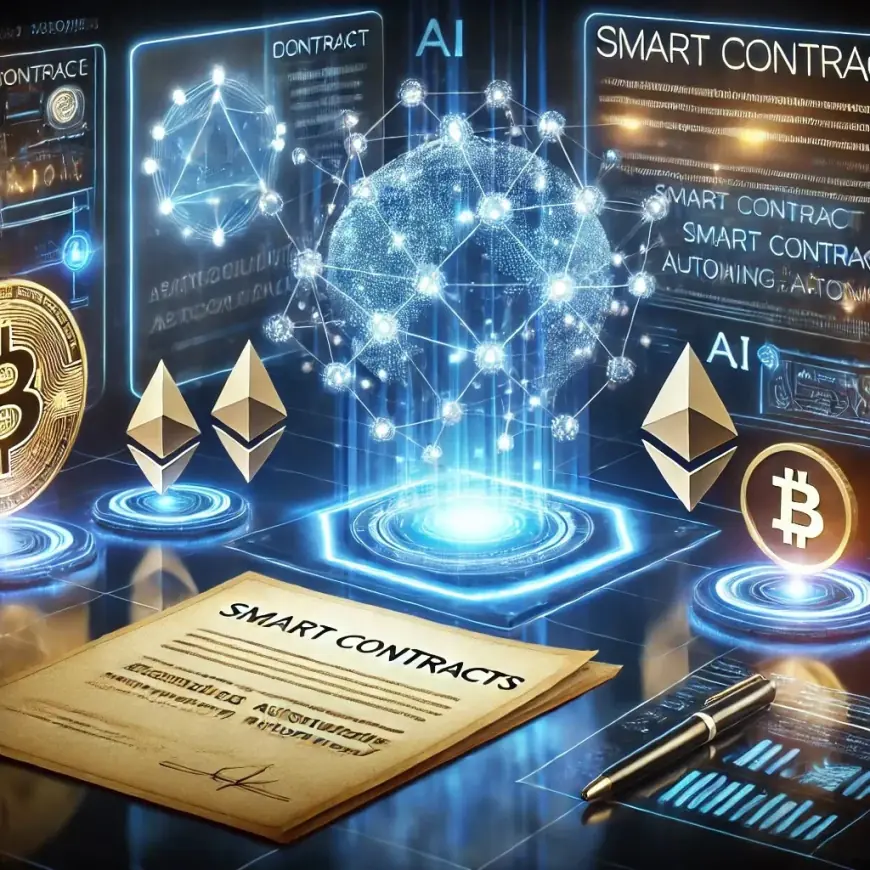
Introduction
The convergence of artificial intelligence (AI) with blockchain-based decentralized autonomous organizations (DAOs) is reshaping how governance is managed across industries. By integrating machine learning models with self-executing smart contracts, DAOs can evolve from basic voting platforms into intelligent governance ecosystems capable of making smarter, data-driven decisions. For startups, enterprises, and investors exploring blockchain adoption, a smart contract development company provides the expertise necessary to design, audit, and deploy governance systems that are not only decentralized but also enhanced with AI-driven decision-making.
This article explores the mechanics of AI-orchestrated DAO governance, the role of smart contract development services, and the transformative impact this integration could have on organizational decision-making, efficiency, and transparency in the future of digital economies.
Understanding DAO Governance in Its Current Form
DAOs are decentralized organizations governed by blockchain-based rules encoded in smart contracts. These organizations replace traditional hierarchies with community-driven governance, enabling participants to make collective decisions through token-weighted voting mechanisms.
While revolutionary, most DAOs today face challenges in scalability, efficiency, and decision accuracy. Human bias, low voter turnout, and limited data consideration often weaken governance outcomes. For instance, token holders may not always have the expertise or context to make the most strategic decisions for treasury allocation, protocol upgrades, or partnership approvals.
Here is where AI-enhanced governance can revolutionize the DAO model. Instead of relying solely on participant votes, AI models can analyze large data sets, predict potential outcomes, and orchestrate decision-making in a way that preserves decentralization while improving efficiency.
The Role of AI in Orchestrating DAO Governance
Predictive Modeling for Decision Support
Artificial intelligence can analyze historical governance data, market movements, user activity, and financial trends to recommend strategies for DAOs. For example, if a DAO manages a decentralized lending protocol, AI can predict the risks associated with proposed collateral changes, helping members make informed decisions.
By embedding these predictive models directly into smart contracts, governance becomes proactive rather than reactive. This ensures that proposals and decisions are evaluated not only based on community sentiment but also on reliable forecasting and risk assessments.
Natural Language Processing for Proposal Analysis
DAO proposals are often written in human language, making it difficult for smart contracts to interpret their implications directly. With natural language processing (NLP), AI systems can read governance proposals, summarize their intent, evaluate potential risks, and translate them into structured data for smart contracts to process. This reduces ambiguity and improves the accuracy of how proposals are implemented.
Autonomous Execution of Governance Decisions
Smart contracts automate the enforcement of DAO decisions. When combined with AI, these contracts can dynamically adapt based on evolving conditions. For example, if a DAO votes to allocate funds for ecosystem development, AI algorithms can track milestones and release funds in phases based on real-time progress reports. This ensures accountability without requiring constant human oversight.
Benefits of AI-Orchestrated DAO Governance
Enhanced Decision Accuracy
AI ensures that decisions are backed by data analysis, forecasting, and simulations rather than emotional or speculative voting. This is crucial for DAOs that manage large treasuries or critical infrastructure.
Increased Participation
With AI summarizing proposals, presenting risks, and suggesting optimal paths, DAO members can participate more effectively, even if they lack technical expertise. This broadens engagement and ensures that governance does not remain dominated by a few power users.
Improved Transparency and Accountability
Smart contracts enforce transparency by recording every decision on-chain. AI builds upon this by ensuring that decisions are informed by transparent data sets, making the entire governance process auditable.
Adaptive Governance Structures
Traditional DAOs often operate with rigid governance frameworks. AI allows for dynamic updates, enabling organizations to evolve their decision-making processes as market conditions and community needs change.
Technical Architecture of AI-Powered DAO Governance
An AI-orchestrated DAO governance system typically integrates four primary layers:
-
Data Ingestion Layer: IoT devices, APIs, and blockchain feeds supply real-time data such as token prices, user behavior, or market conditions.
-
AI Processing Layer: Machine learning algorithms analyze incoming data and predict outcomes for governance proposals.
-
Smart Contract Execution Layer: Smart contracts enforce governance decisions based on community input and AI recommendations.
-
User Interaction Layer: DAO participants interact through decentralized apps (dApps) that provide insights, visualizations, and voting interfaces.
By engaging a smart contract development company, businesses can design this architecture to fit specific governance models, ensuring that AI components align with decentralized principles while maintaining security and compliance.
Real-World Use Cases of AI-Orchestrated DAOs
Investment DAOs
In investment-focused DAOs, AI can predict asset performance and guide treasury allocations. Rather than relying solely on token-weighted votes, members can consider AI-driven insights before deciding on capital deployment.
Protocol Governance
DeFi protocols require frequent updates to interest rates, collateral factors, or liquidity parameters. AI-enhanced governance enables DAOs to automatically adjust these parameters through predictive analysis while still involving human oversight for final approvals.
Sustainability and Impact DAOs
AI-driven DAOs can analyze environmental, social, and governance (ESG) data, enabling organizations to allocate resources effectively toward green initiatives. Smart contracts ensure that commitments to carbon offsets or sustainability projects are executed transparently.
The Role of Smart Contract Development Services
For businesses exploring DAO governance, working with a smart contract development company is critical to ensure secure deployment. These companies offer specialized smart contract development services such as architecture design, auditing, integration with AI models, and customized governance frameworks.
Professional development partners ensure that governance contracts are optimized for scalability, resistant to exploits, and adaptable to AI orchestration. Moreover, they provide guidance on regulatory compliance, which is especially vital as DAO operations increasingly intersect with financial and legal domains.
Challenges in Implementing AI-Orchestrated DAO Governance
Despite its potential, AI-governed DAOs face certain challenges. Training AI models requires high-quality data, which may not always be available in decentralized contexts. There is also the risk of algorithmic bias, where flawed training data could lead to skewed decision-making.
Security remains another concern. While smart contracts provide automation, vulnerabilities in AI integration layers could be exploited if not properly audited. Additionally, regulators are still developing frameworks for AI and DAO governance, raising compliance questions for businesses operating in this space.
This is why enterprises must rely on expert smart contract development services, ensuring that AI integrations undergo rigorous testing and audits before deployment.
The Future of AI-Orchestrated DAOs
The next generation of DAOs will likely move beyond static governance into adaptive, AI-driven ecosystems. With advancements in federated learning and decentralized AI, governance decisions will not rely on centralized machine learning models but rather on distributed, privacy-preserving intelligence.
As blockchain and AI technologies mature, DAOs will gain the capacity to self-evolve, optimizing governance parameters autonomously. For startups and enterprises, engaging with a smart contract development company at this early stage provides a competitive advantage, enabling them to design governance systems that remain future-proof in a rapidly changing digital economy.
Conclusion
AI-orchestrated DAO governance represents the evolution of decentralized decision-making. By combining the transparency and automation of smart contracts with the analytical power of AI, organizations can achieve governance structures that are smarter, fairer, and more adaptive.
For businesses, the key to unlocking this potential lies in leveraging professional smart contract development services that ensure secure integration, regulatory compliance, and scalability. A trusted smart contract development company can transform visionary concepts into operational frameworks that redefine governance in Web3 ecosystems.
As the line between AI intelligence and decentralized governance blurs, organizations that embrace these technologies early will be positioned as leaders in shaping the future of digital collaboration and automated decision-making.
Frequently Asked Questions (FAQs)
What is AI-orchestrated DAO governance?
AI-orchestrated DAO governance combines artificial intelligence with blockchain-based DAOs, allowing smarter, data-driven decision-making through automated smart contracts.
How do smart contracts support DAO governance?
Smart contracts encode governance rules, enforce decisions, and ensure transparency by recording all DAO activities on the blockchain. They automate decision execution without intermediaries.
Why should businesses work with a smart contract development company?
A smart contract development company ensures secure deployment, AI integration, and compliance. Their expertise reduces risks and creates scalable governance models.
What industries can benefit from AI-powered DAOs?
Industries such as finance, sustainability, DeFi, supply chain, and investment management can use AI-orchestrated DAOs for efficient and transparent governance.
What are the risks of AI integration in DAO governance?
Challenges include data quality issues, algorithmic bias, security vulnerabilities, and evolving regulations. Professional smart contract development services help mitigate these risks.
What's Your Reaction?
 Like
0
Like
0
 Dislike
0
Dislike
0
 Love
0
Love
0
 Funny
0
Funny
0
 Angry
0
Angry
0
 Sad
0
Sad
0
 Wow
0
Wow
0






